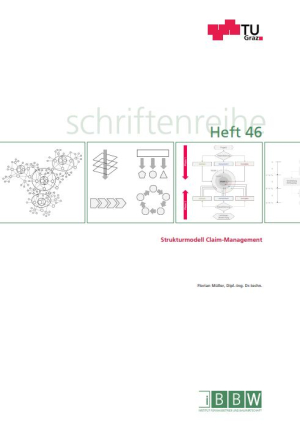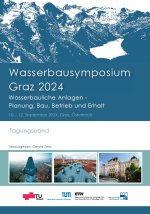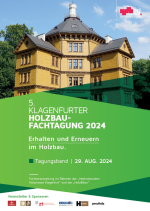Increasing project complexity makes it substantially difficult to define project goals and thus predetermine deviations from an early stage on. Ultimately leading to delay and disruption. Despite being part of project delivery, no congruent claim management exists. A conducted quantitative survey among claim experts illustrates that current claim management models are not only time- and cost-consuming but also lead to little success. Furthermore, current models do not take the type and complexity of a project and a claim into account. However, complex claims require professional claim management to ensure sufficient causation and comprehensible quantification of entitlement. Therefore, the process design must be based on type and complexity of the project and the deviation. Agile contract models offer the possibility of adaptive organizational structures. Considering that with increasing complexity an increasing level of cooperation is needed, cooperative quantification may ensure a conflict-free process. Empirical data was gathered, allowing for the design of an adaptive organizational structure to assess claims. During the project design phase the complexity of the project is evaluated. Based on the results, an appropriate organizational structure can be integrated during the contract design. During project execution in the event of a deviation, its complexity is to be graded. Following the classification of the deviation, the appropriate contractual model can be selected.
Issue: paperback
ISBN: 978-3-85125-901-8
Scope: 248 pages
Language: Deutsch
Release date: July 2023
Series: Schriftenreihe des Instituts für Baubetrieb und Bauwirtschaft, Issue 46
€ 35.00
Increasing project complexity makes it substantially difficult to define project goals and thus predetermine deviations from an early stage on. Ultimately leading to delay and disruption. Despite being part of project delivery, no congruent claim management exists. A conducted quantitative survey among claim experts illustrates that current claim management models are not only time- and cost-consuming but also lead to little success. Furthermore, current models do not take the type and complexity of a project and a claim into account. However, complex claims require professional claim management to ensure sufficient causation and comprehensible quantification of entitlement. Therefore, the process design must be based on type and complexity of the project and the deviation. Agile contract models offer the possibility of adaptive organizational structures. Considering that with increasing complexity an increasing level of cooperation is needed, cooperative quantification may ensure a conflict-free process. Empirical data was gathered, allowing for the design of an adaptive organizational structure to assess claims. During the project design phase the complexity of the project is evaluated. Based on the results, an appropriate organizational structure can be integrated during the contract design. During project execution in the event of a deviation, its complexity is to be graded. Following the classification of the deviation, the appropriate contractual model can be selected.
These could also be of interest to you
- Catalog
- New releases
-
Open Access publications

- Enhanced e-books
-
Series
- Akademische Reden an der Technischen Universität Graz
- Arbeitshilfen für die Praxis
- Archiv und Bibliothek
- Betonkolloquium
- Buddhist Architecture in the Western Himalayas
- BWL Schriftenreihe
- Electrical Power Systems
- Fachbücher Planung und Bau
- Facts & Figures
- Festschriften TU Graz
- Forschungsreihe IBBW
- Forum Technik und Gesellschaft
- Geodesy
- Immersive Learning Research Network Conference; Workshop, short papers, poster
- Institut für Gebäudelehre Jahrbuch
- International Brain-Computer Interface (BCI) Meeting
- LM.VM.2014
- Logistik Werkstatt Graz
- Materialien zu Schwerpunkten am Institut für Gebäudelehre
- Mathematical Modelling of Weld Phenomena
- Monographic Series TU Graz
- Monographic Series TU Graz|Advanced Materials Science
- Monographic Series TU Graz|Computation in Engineering and Science
- Monographic Series TU Graz|Production Science and Management
- Monographic Series TU Graz|Railway Research
- Monographic Series TU Graz|Reihe Fahrzeugtechnik
- Monographic Series TU Graz|Schriftenreihe des Instituts Betonbau
- Monographic Series TU Graz|Structural Analysis
- Monographic Series TU Graz|Techno- und sozioökonomisch orientierte Betriebswirtschaft
- Monographic Series TU Graz|Technoökonomie und industrielles Management
- Monographic Series TU Graz|Timber Engineering & Technology
- November Talks
- Proceedings of the International Brain-Computer Interface
- Schriftenreihe des Instituts für Baubetrieb und Bauwirtschaft
- Schriftenreihe des Instituts für Straßen- und Verkehrswesen
- Schriftenreihe des Instituts für Wohnbau der TU Graz
- Schriftenreihe zur Wasserwirtschaft
- Science, Technology and Society online
- Seminarreihe Bauunternehmensführung
- Studien zur Architektur | TU Graz
- Textbook Series
- Transform Industry: Guiding the transformation of SMEs
- TU Graz Jahresbericht | Annual report
- TU Graz people
- TU Graz Research
- VKM-THD Mitteilungen; IVT-Mitteilungen ab Bd. 100
- Authors
- Sale
Contact
Verlag der
Technischen Universität Graz
Technikerstraße 4
8010 Graz, Österreich
UID(VAT) ATU 57477929
contact person
Gabriele Groß
Tel.: +43(0)316 873 6157
E-Mail: verlag [ at ] tugraz.at
Privacy Overview
Necessary cookies are absolutely essential for the website to function properly. These cookies ensure basic functionalities and security features of the website, anonymously.
| Cookie | Dauer | Beschreibung |
|---|---|---|
| cookielawinfo-checkbox-analytics | 11 months | This cookie is set by GDPR Cookie Consent plugin. The cookie is used to store the user consent for the cookies in the category "Analytics". |
| cookielawinfo-checkbox-functional | 11 months | The cookie is set by GDPR cookie consent to record the user consent for the cookies in the category "Functional". |
| cookielawinfo-checkbox-necessary | 11 months | This cookie is set by GDPR Cookie Consent plugin. The cookies is used to store the user consent for the cookies in the category "Necessary". |
| qtrans_front_language | 1 year | This cookie is set by qTranslate WordPress plugin. The cookie is used to manage the preferred language of the visitor. |
| viewed_cookie_policy | 11 months | The cookie is set by the GDPR Cookie Consent plugin and is used to store whether or not user has consented to the use of cookies. It does not store any personal data. |
| woocommerce_cart_hash | session | This cookie is set by WooCommerce. The cookie helps WooCommerce determine when cart contents/data changes. |
Analytical cookies are used to understand how visitors interact with the website. These cookies help provide information on metrics the number of visitors, bounce rate, traffic source, etc.
| Cookie | Dauer | Beschreibung |
|---|---|---|
| _pk_id | 1 year 27 days | Required for the operation of Matomo, an analysis tool that tracks and analyzes user behavior. |
| _pk_ref | 13 months | Required for the operation of Matomo, an analysis tool that tracks and analyzes user behavior. |
| _pk_ses | 30 minutes | Required for the operation of Matomo, an analysis tool that tracks and analyzes user behavior. |
Other uncategorized cookies are those that are being analyzed and have not been classified into a category as yet.
| Cookie | Dauer | Beschreibung |
|---|---|---|
| yt-remote-connected-devices | never | No description available. |
| yt-remote-device-id | never | No description available. |







